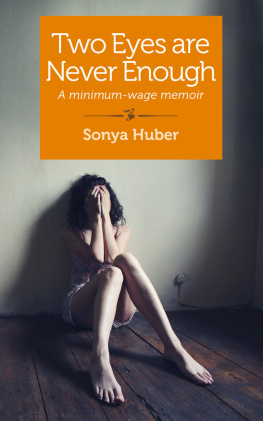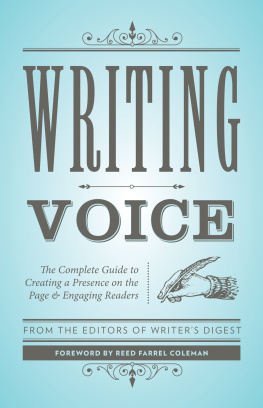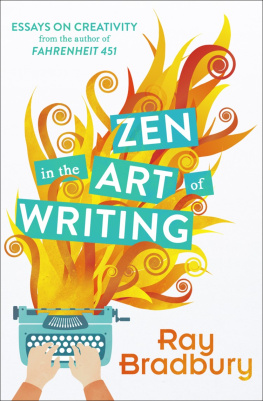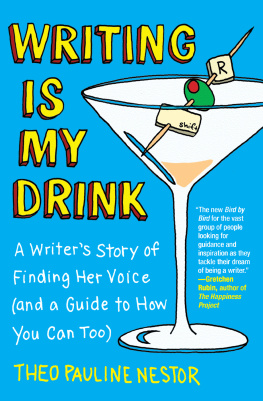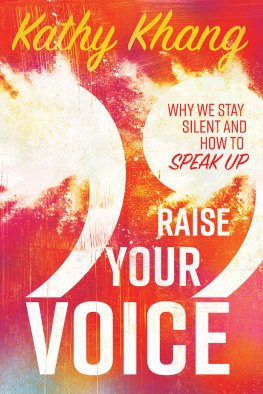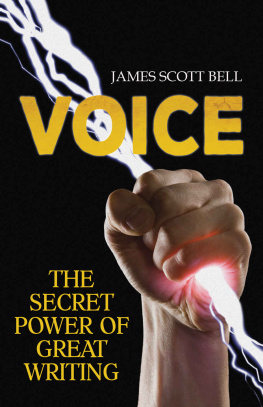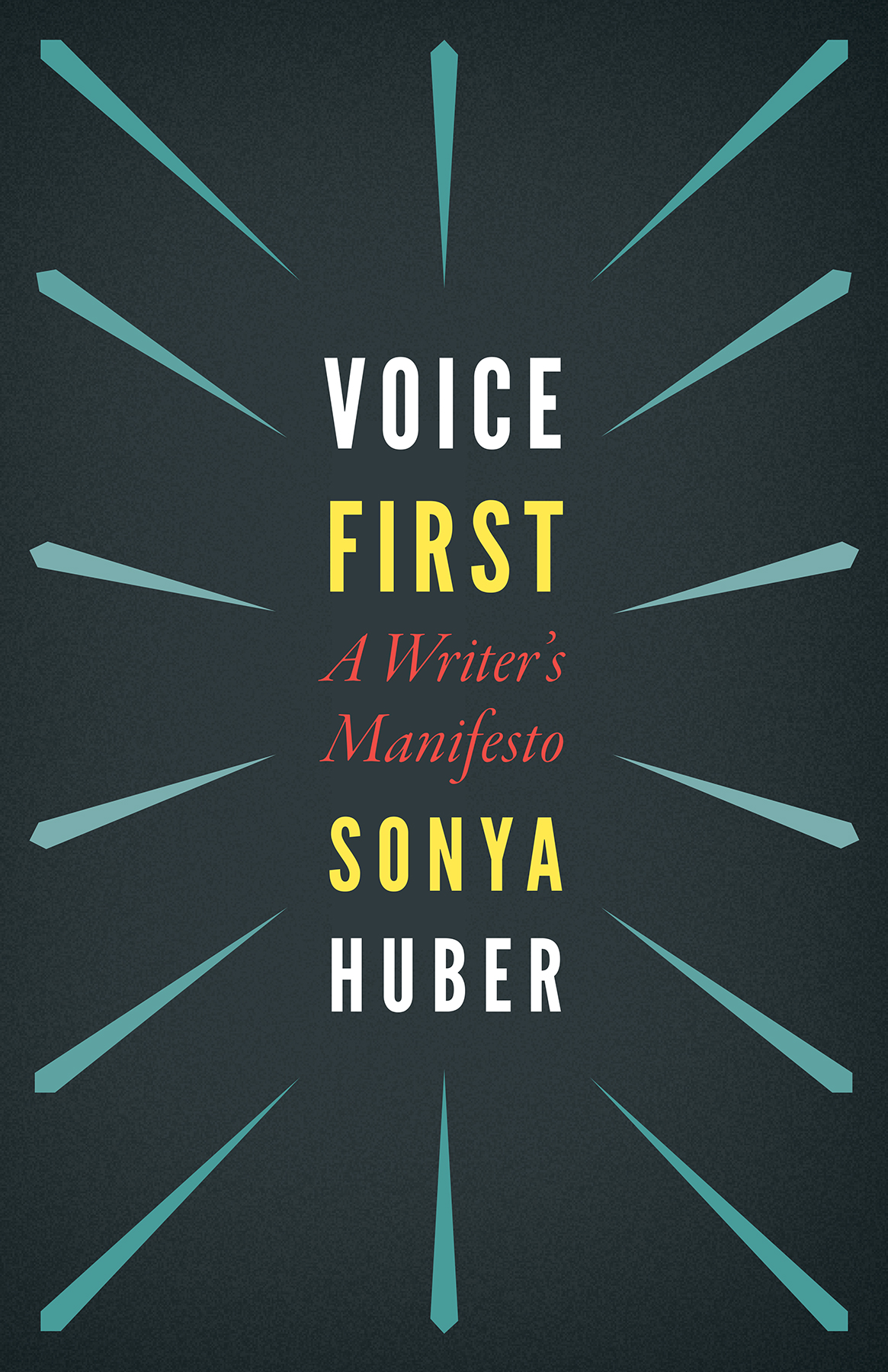
Voice First belongs on every writers bookshelf. Huber deftly explores the multiplicity of voices available to every writer, liberating us from the idea that we each have one and only one authentic voice.
Sarah Einstein, author of Mot: A Memoir
Sonya Huber brilliantly illuminates the intricate paths writers can take to shape their voices on the page.... Voice First is an inclusive, compassionate, and necessary book for writers and anyone teaching the art of writing.
Dinty W. Moore, author of Crafting the Personal Essay
Hubers book is a class in itselfa workshop on naming and finding the glorious, the cantankerous, the jubilant, the apprehensive, the mischievous, and the assiduous voices within.
Bryan Ripley Crandall, director of the Connecticut Writing Project and associate professor of English education at Fairfield University
Voice First
A Writers Manifesto
Sonya Huber
University of Nebraska Press | Lincoln
2022 by the Board of Regents of the University of Nebraska
Cover designed by University of Nebraska Press.
All rights reserved
The University of Nebraska Press is part of a land-grant institution with campuses and programs on the past, present, and future homelands of the Pawnee, Ponca, Otoe-Missouria, Omaha, Dakota, Lakota, Kaw, Cheyenne, and Arapaho Peoples, as well as those of the relocated Ho-Chunk, Sac and Fox, and Iowa Peoples.
Library of Congress Cataloging-in-Publication Data
Names: Huber, Sonya, 1971 author.
Title: Voice first: a writers manifesto / Sonya Huber.
Description: Lincoln: University of Nebraska Press, [2022] | Includes bibliographical references and index.
Identifiers: LCCN 2021057715
ISBN 9781496231314 (paperback)
ISBN 9781496232830 (epub)
ISBN 9781496232847 (pdf)
Subjects: LCSH : English languageRhetoricStudy and teaching (Higher) | Authorship. | Creation (Literary, artistic, etc.) | BISAC : LANGUAGE ARTS & DISCIPLINES / Writing / General
Classification: LCC PE 1404 . H 835 2022 | DDC 808/.0420711dc23/eng/20220114
LC record available at https://lccn.loc.gov/2021057715
The publisher does not have any control over and does not assume any responsibility for author or third-party websites or their content.
Contents
Voice is a term that vexes writers and teachers. We use it quite a lot, and we know it when we see it, but most of us have struggled to define where it comes from or how to encourage it. I believe that we often hold this sense of voice as self or essence a little too tightly. The idea of one authentic voice is a holdover from a time when we saw each self as singular, isolated, and separate. These days were moving beyond ideas of simple subjectivity and objectivity, and were more likely to see the self as constituted in relation to others, in community.
The idea of an authentic voice also doesnt make sense to me in terms of a writers process and life. If a writer happens upon that so-called authentic voice, does that mean the previous voices were false or impostors? Would that authentic voice then, once discovered, stay constant and reliable, even as the writers life spurs change and perspectives evolve?
Even in looking at scholarshipsuch as The Writers Voice by A. Alvarez, for one exampleyou can see the way the concept of authentic voice doesnt actually work in practice. Alvarez talks about poet Sylvia Plath having finally come into her authentic voice but then, getting into the details of the poem The Moon and the Yew Tree, describes it as a poem in two voices that speak out and clash continually through the poem. This comes up a lot: the idea of a voice made of voices.
For that, and many other reasons, Ive decided to reclaim the term voice, give it a plural, and use it as a tool in the service of writing. As Felicia Rose Chavez describes in her book, The Anti-Racist WritingWorkshop, a question about the definition of voice or another literary term can be turned into an investigation of process, with the test of How does your definition influence the way you read and write? Thats the question Ive been asking myself. This book is the result of me trying to watch what Im doing as I write and read, so the inferences here were first based on a sample size of one and then tested through writing and talking with other writers and readers. Ive tried to pay attention to and intuit the feeling of writing, of coming into voices, in a way that I hope is generative and that sparks inspiration for other writers and readers.
Voices, to me, are the engines inside us that summon and refract meaning. Paisley Rekdal defines voice as a ceaseless stream of impressions formed through memory, sense, and emotion, all of which trigger more memories and emotions as we internally narrate the story of our lives. I love this sense of a voice river that is the font of story and speech, and to extend the metaphor, that river could have many currents and inlets and eddies that can float leaves or turn into shallow rapids. Voices provide the link between our thoughts and the way those thoughts come out into the world.
Along the way Ive had to tackle a few other terms, such as tone, that youll encounter through a new lens in these pages. If youre baffled by the definition of literary terms like voice and style and tone and diction, dont worry. Different people have their favorite definitions, and those are helpful because they are approximations of the ideas to use and react against. But language and expression themselves are such shifting, movable creatures that its fine if the instruments we use to track them are always staggering and racing to catch up.
Often style is used to denote a series of party tricks with language, the surface thumbprint of sentences and words that an author tends toward. I wont talk much about style in this book, but Im assuming that this toolboxall of a writers go-to words and phrases and comfortable sentence constructionsis what many writers have meant when they talk about authentic voice. To me style is your toolbox. Voices are the things in your ears that whisper what to build, that react to a cut of lovely cherrywood and say, Oh, make this a hearth. To simplify, remember that theres sometimes a separation between what it feels like to write and the terms of analysis used to discuss literary effects. To me voices impel the telling, and the braiding and melody of their resonance and dissonance are what create an urgency in the tale.
Poet Adrienne Rich expressed this same impulse in the poem Phantasia for Elvira Shatayev, which is about a womens climbing team:
If in this sleep I speak
its with a voice no longer personal
(I want to say with voices)
Her use of the parentheses hedges and shifts her meaning, and then within them she offers a sense of the speakers own voices in a plural chorus, adding layers, authority, and depth.
No matter what genres youre writing in, the notion of voices in your work may help you explore a full range of options for what you want to write about and how. I think our storehouse of voices crosses genre lines, and the more we train and explore them, the more our writing options will grow.
When I first heard, as a young person who liked to write, that writing was about finding your voice, I got nervous. That seemed very risky. What if I picked the wrong one? And I had a hard time listening to some of those voices inside myself and appreciating them. I always thought I should sound
Next page

